When shares from an Employee Share Scheme (ESS) vest, executives face a critical decision: what to do with the vested shares? One often overlooked option is using those shares to make tax-effective superannuation contributions, particularly when selling the shares isn’t the preferred choice.
The Taxing Point of ESS Vesting
For high-earning executives, the general taxing point under an ESS occurs when the shares vest. At this point, the value of the shares is included in your taxable income, leading to a corresponding tax liability based on your marginal tax rate. For those in the top marginal tax bracket, this means a tax bill equal to 47% of the shares’ value at vesting, inclusive of the Medicare Levy.
Given the potential size of this tax obligation, it’s crucial to carefully plan your strategy at the point of vesting. For a detailed breakdown of ESS and share vesting, refer to our earlier article.
Super Contributions: A Valuable Option
While your own tax effective super contributions may already be maxed out, there are other avenues to explore that could provide significant tax advantages. Consider the following scenarios:
- Unused Concessional Contributions: Though less common for high-income executives, it’s worth checking whether any concessional contributions cap remains unused from the past 5 years. These contributions are taxed at the concessional rate of 15%, making them highly tax-efficient compared to your marginal tax rate.
- A Working Spouse’s Unused Concessional Contributions: If your spouse has taxable income over $45,000 and isn’t making full use of their concessional contributions, transferring your ESS shares to their super fund can be a highly effective strategy. Some super funds allow shares to be contributed in place of cash, enabling you to retain ownership of your shares while still benefiting from super’s tax-efficient environment.
- Making Contributions Without Cash: One of the biggest advantages for high-earning executives is the ability to make super contributions through the transfer of shares instead of cash. This is particularly beneficial when cash flow is limited or used for other purposes, as it allows you to hold onto your shares, potentially sell them at a more favourable time, and still contribute to superannuation without liquidating assets.
How It Works: A Practical Example
Let’s explore a scenario to highlight the potential tax benefits:
Suppose you’re a high-earning executive with $50,000 worth of shares that have vested. To manage your tax liability, you sell a portion of the shares to cover your future tax bill of $23,500, leaving you with $26,500 in shares (taxed at 47% including Medicare Levy). Meanwhile, your spouse earns taxable income between $45,000 and $135,000, placing them in a marginal tax bracket of 32%, including Medicare Levy.
By transferring $26,500 worth of shares to your spouse’s superannuation fund, you enable them to benefit from the concessional super contributions tax rate of 15%. This results in a tax saving of the difference between their marginal tax rate (32%) and the super contributions tax rate (15%)—a net benefit of $4,505 on the share transfer.
Why This Strategy Matters
For executives who wish to retain their shares while managing their tax liabilities, utilising superannuation contributions can provide a significant tax advantage, allowing you to make the most of your wealth while planning for the future.
By leveraging this approach, you not only reduce your immediate tax obligations but also build your superannuation nest egg, increasing long-term retirement benefits. In scenarios where liquidity is an issue, contributing shares to super also means you don’t need to fund contributions from cash, allowing more flexibility.
Take the Next Step
If you’re considering your options at the point of ESS vesting, it’s essential to seek professional advice to ensure your strategy aligns with your broader financial goals. At Executive Strategies, we specialise in guiding high-earning executives through these complex decisions to maximise their financial outcomes.
For personalised advice on how to maximise your super contributions from ESS and other tailored financial strategies, contact us for a free discovery call. We can help you develop a strategy that aligns with your financial goals and ensures you’re making the most of your vested shares.
Contact James Marshall at +61 (0) 7 3007 2080 or email contact@executivestrategies.com.au for a personalised consultation.








